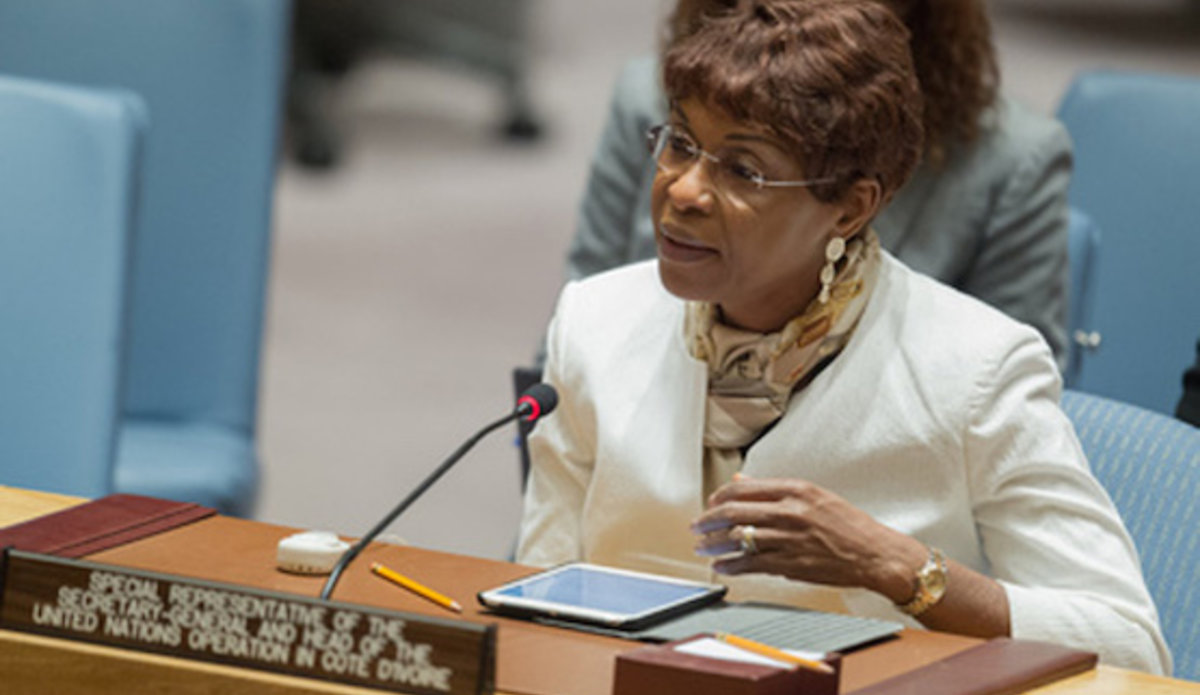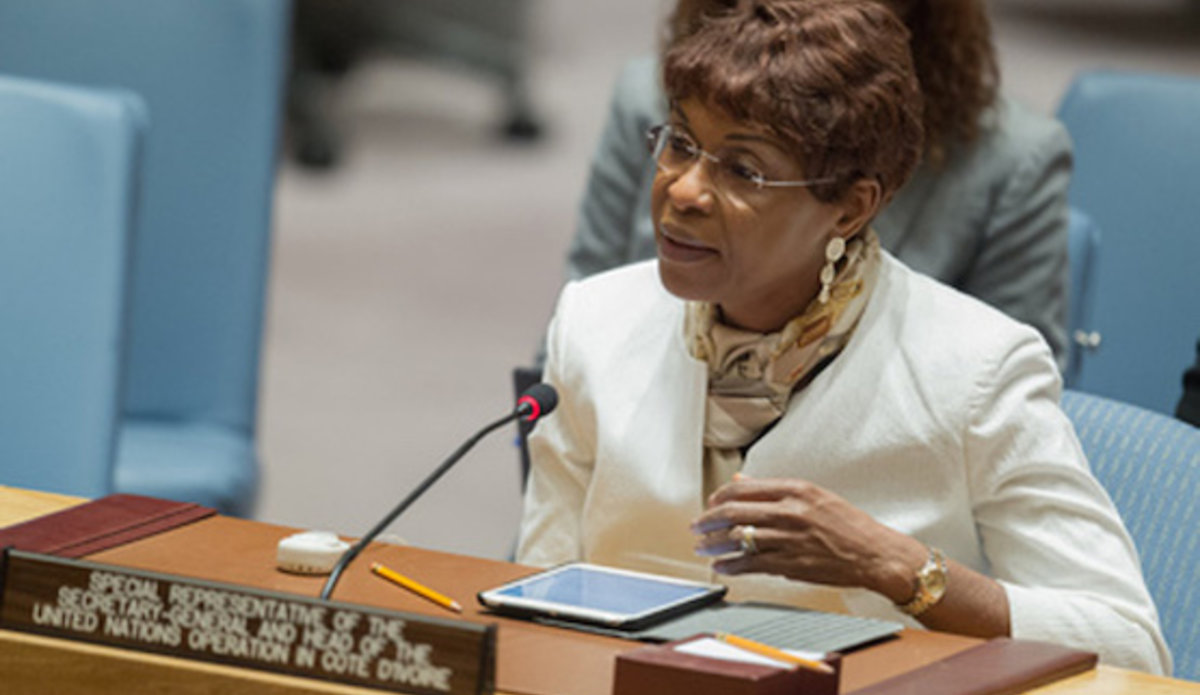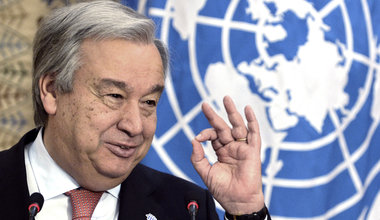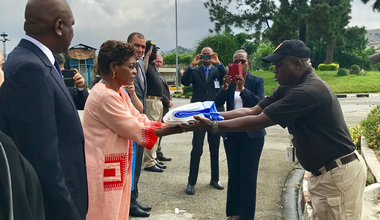Briefing by Ms. Aïchatou Mindaoudou Special Representative of the Secretary-General for Côte d’Ivoire 13 January 2016

Mr. President, Distinguished Members of the Security Council,
-1. Thank you for the opportunity to speak before this Council in order to present the latest report of the Secretary-General on the situation in Côte d'Ivoire, and to provide an update on major developments in the country, including the 25 October presidential election and the remaining challenges facing Côte d'Ivoire.
-2. Since my last briefing to this Council, Côte d'Ivoire was put to the test through the holding of the presidential election. The people of Côte d'Ivoire voted peacefully and re-elected President Alassane Ouattara to a second term in office.
-3. The peaceful conclusion of the presidential election provides the people of Côte d'Ivoire with the opportunity to turn the page, start a new chapter in their country's history and consolidate the country's achievements towards long-term stability. Despite the withdrawal of three candidates and the arrest and detention of several persons for organising unauthorised political gatherings and demonstrations, the national authorities, including the security forces, demonstrated their ability to assume responsibility for organising and safeguarding the voting process. I take this opportunity to commend the efforts of the Independent Electoral Commission in organising the election without major incidents, and thank Côte d'Ivoire's bilateral, multilateral and international partners for their technical, financial and logistical support.
-4. In the run-up to the 25 October presidential election, I employed my good offices to urge both the Government and opposition parties to resume dialogue, with a view to creating an environment conducive to the holding of a peaceful election, which they did. I pay tribute to the efforts of the Government to accommodate the demands of the opposition ahead of the election in this regard. The implementation of the Mission mandate country-wide, coupled with my good offices engagements with civil society, traditional, religious and community leaders, youth groups and women's associations through the civil society, women and youth platforms was also instrumental as UNOCI accompanied Côte d'Ivoire in ensuring a peaceful election.
-5. Mr. President, Côte d'Ivoire is now the second largest economy in West Africa, a remarkable recovery since the post-election crisis of 2010/2011. It is now hoped that the people of Côte d'Ivoire will fully enjoy the dividends of the economic growth. National reconciliation, however, lags behind reconstruction and economic recovery. In this regard, I welcome President Ouattara's inauguration statement where he indicated his determination to make national reconciliation a priority of his second term. Without losing time, on 7 December 2015, President Ouattara began his consultation on the subject with the executive committee of the National Chamber of traditional kings and chiefs, and he similarly met with religious leaders and representatives of the National Commission for Reconciliation and the Compensation of Victims of Crises in Côte d'Ivoire (Commission nationale pour la réconciliation et l'indemnisation des victimes des crises survenues en Côte d'Ivoire) on 8 December 2015. Further to these consultations, President Ouattara granted presidential pardon to 3100 prisoners including some prisoners from the post electoral crisis. In addition the Government decided to continue with the compensation of the victims. I urge the Government to release the Commission's report to the public, as previously requested by the Security Council in resolution 2226 (2015).
-6. Progress in the prosecution of alleged perpetrators of crimes committed during the post-elections crisis remains slow. I urge the Government to expedite investigations of the Special Investigation and Examination Cell and prosecute all those alleged to have committed atrocities regardless of political affiliation.
-7. Mr. President, I am encouraged by the participation in many public forum and seminars of women, whether they be representing their political parties or generally voicing their concerns on matters of national interest. It augurs well for an increased participation of women in future elections and ultimately in decision-making positions. I note, in this regard, the President's intention to make women's empowerment a priority during his second term. A lot of effort has gone into the prevention of sexual- and gender-based violence and support for victims but the prosecution of alleged perpetrators remains slow. The strengthening of the judicial system to properly address such cases in a timely manner is critical if such behaviour is to be curbed for good.
-8. Distinguished Members of the Security Council, ensuring security during the electoral process was a test for the Ivorian security forces. Despite some short-comings, the national police, gendarmerie and armed forces met the challenge. To maintain this momentum, it is important that the Defence Bill on the Organization of the Defence Sector and the Armed Forces of Côte d'Ivoire, adopted by the National Assembly on 9 March, be now promulgated. This legislation is an important step towards the transformation of the security sector, in particular the professionalization and accountability of the army. Efforts to ensure progress to gradually reduce the gender gap and to restore the confidence of the population in the national defence and security force should be continued to be pursued.
-9. The Government of Côte d'Ivoire completed its disarmament, demobilization and reintegration programme, as it had planned. However, the continued support of Côte d'Ivoire's bilateral and multilateral partners will be necessary to support reinsertion programmes for the residual caseload of combatants, with a view to translating reinsertion into long-term reintegration.
-10. Mr. President, the security situation in Côte d'Ivoire remains stable with violent crimes still on the downward trend since CI's last report. During the electoral period, no serious security incidents were reported by the population, nor the candidates. Armed robberies and banditry, however, continues to be a challenge, as well as threats of terrorist attacks. An attack claimed by the terrorist group, Ansar Dine, in South Mali, close to the border with Côte d'Ivoire, prompted the Government to deploy its security forces along the border with Mali and UNOCI also deployed its quick reaction force in June and July to support the FRCI military operation along the border. Threats of cross-border attacks remain, particularly along the Liberian border – where the most recent attack on two FRCI posts on 2 December resulted in the death of seven FRCI soldiers and injuries to four assailants – and along the Ghanaian border, where an attack on a FRCI post on 27 December resulted in two arrests but no casualties. The Ivorian Government is capable of addressing attendant and latent security threats, both internal and external to the country. Its effectiveness, however, hinges on the proper equipping and resourcing of law enforcement and security forces, in addition to the army.
-11. The land border between Cote d'Ivoire and Liberia remains closed as a precaution against the Ebola Virus Disease, but information-sharing between the United Nations Mission in Liberia (UNMIL) and UNOCI has continued. Humanitarian corridors were also opened on 18 and 22 December 2015 to allow for the voluntary repatriation of Ivorian refugees from Liberia, facilitated by UNHCR. SRSG Zarif of UNMIL and I witnessed the crossing of 18 December 2015.
-12. Mr. President, pursuant to resolution 2226 (2015), the authorised strength of the UNOCI Force stands at 5,437 and while that of the Police at 1,500. Looking forward, and taking into account the successful conduct of the 2015 presidential election, the security situation on the ground and the capacity of the Government of Côte d'Ivoire to take over UNOCI's security role, UNOCI is ready to implement the elements contained in paragraph 65 of the Secretary-General's report of 15 May 2014 (S/2014/342). This will entail the further reduction of the UNOCI Force to 4,000 troops by 31 March 2016. A strategic review team will deploy in February for the purpose of developing recommendations on the further downsizing of UNOCI military and police, and the future of the mission, as requested by this Council.
-13. Mr. President, challenges remain in Côte d'Ivoire notwithstanding the successful holding of the presidential election and the improving security situation on the ground. Progress to advance national reconciliation, the strengthening of the security sector, in particular the reform of the army, sustainable reinsertion and reintegration of former combatants, and further improvements in the human rights situation and in transitional justice are all key challenges facing Côte d'Ivoire on the path to durable stability. Further to this is the holding of Côte d'Ivoire's legislative elections in December. The Ivorian institutions will have the complex task of organizing and securing an electoral process involving hundreds of candidates all over the country. However, these elections are crucial, and should involve the full political spectrum in Cote d'Ivoire, as it will be an opportunity for the opposition to participate and secure seats in the National Assembly, as per a vibrant democracy. In all of these, our combined support – the Security Council, Member States, international and regional partners, and the UN system in Côte d'Ivoire – remains essential.
-14. Mr. President and Distinguished Members of the Security Council, I thank you, once again, for your invaluable support.
 UN
UN United Nations Peacekeeping
United Nations Peacekeeping








